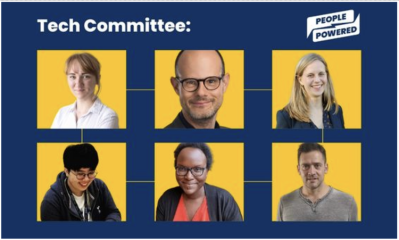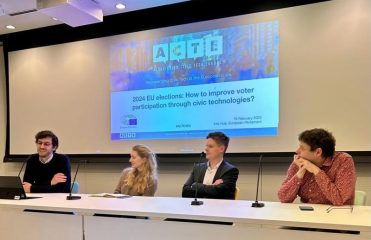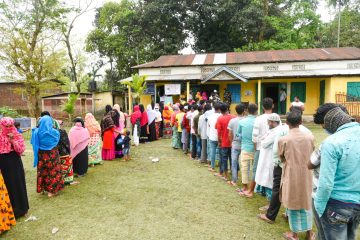
The Status of EU-Wide e-ID
Last week the EU Parliament voted to move into interinstitutional negotiations around the implementation of an EU-wide electronic ID. Yesterday marked the first of those 'trilogues'. While an e-ID would be of enormous value and help streamline access to public and private services, there are still a few issues to work out.
Read more
Democracy Technologies at the Innovation in Politics Awards Convention
On 11 May, leaders and political innovators from across Europe will gather at the Palace of Culture in Warsaw for this year’s Innovation in Politics Awards. This year they are held as a day-long convention with a special focus on Democracy Technologies.
Read more
Voting Machine Conspiracies On Trial
What does the Dominion vs. Fox case mean for the e-voting industry?
Read more
ACTE – Fighting for the Recognition of the Civic Tech Market
The Brussels-based Association Civic Tech Europe (ACTE) was founded in December 2019 to represent organisations developing civic and citizen-oriented technological solutions (civic tech) at the European level. Democracy Technologies talked to ACTE President Adrien Duguet.
Read more
People Powered Launches Updated Ratings on Digital Participation Platforms
Yesterday saw the release of People Powered’s latest Digital Participatory Platforms Ratings, via digital launch event. We joined in to hear the latest, see the results and learn about the process.
Read more
E-Voting, Trust, and the Holy Grail of Political Elections
Polyas is an e-voting company from Germany. Democracy Technologies talked to one of their CEOs, Jan Wegner, about the company’s recent achievements and plans for the future.
Read more
Defending Democracy Against ‘Team Jorge’ and Cyber Saboteurs
Democracy’s destruction has become a lucrative business, highlighting the fact that its defence requires ‘eternal vigilance’. We spoke to Patrick Penninckx, Head of Department for Information Society at the Council of Europe and Peter Wolf of the International Institute for Democracy and Electoral Assistance, to ask them what’s being done — and what else needs to be.
Read more
Upgrades, Allocations and Destabilisations
CitizenLab releases a new feature, journalists reveal anti-democratic operations and participatory budgets in the US set for a huge boost.
Read more
Civic Tech in Europe: Can it Boost Participation in 2024 EU Elections?
How can civic tech improve participation in the 2024 European elections? This was the focus of last night’s event, hosted by the Association of Civic Tech Europe (ACTE) at the European Parliament in Brussels, which brought together some of the biggest names in civic tech in Europe.
Read more
Audits, AI Bills and Calls to Action
Brussels calls on young people to have their say, while in the USA, Wisconsin completes it's election audit and a Massachusetts senator submits an AI bill written by an AI.
Read more
Online Voting Needs Recognised Security Standards
After years of build-up, the Danish voting company Assembly Voting is expanding quickly. Founder and CEO Jacob Gyldenkærne explains his vision and his belief in security and quality standards.
Read more
Councils, Capitals and Commissions
Barcelona is declared 'European Capital of Democracy', the Council of Europe excludes civil society from the first AI treaty and the Indian Electoral Commission demos a remote voting system.
Read more
Behind the Scenes on Open Source Democracy Technology
We decided to shine a light on the motivations, challenges and views, of some of the dedicated open source developers who spend countless hours building and bug-fixing the democratic tools and platforms of the future.
Read more
Barcelona Voted First ‘European Capital of Democracy’
The city impressed a citizens jury, with projects including Decidim — a modular open source digital participation platform now in use around the world.
Read more
Access, Accessibility and Alleged Fraud
Wheelchair access is won in Denver's first participatory budget, New South Wales removes i-voting affecting vision impaired citizens, and Bolsonaro supporters storm congressional buildings in Brazil.
Read more